Apparently 150 years ago a former Virginia governor and Confederate general was not buying into the Lost Cause theory.
From The New-York Times on October 26, 1866:
The celebration at Winchester to-day was an entire success, if a large crowd and lengthy oration are elements. The number in attendance were fully 5,000, and Ex-Gov. WISE was the orator. Stonewall cemetery already contains the remains of 2,000 rebel dead gathered from around Winchester.
The ceremonies to-day were intended as dedicatory. The funeral and burial of the brothers ASHBY was the main feature of the morning, the procession through the streets being large and imposing, and the burial being accompanied with Masonic honors. Ex-Gov. WISE spoke for two hours. After his oration a poem was read, and the ceremonies concluded late in the day. The number of drunken men in and about Winchester was very large, and, for an occasion of this kind, disgraceful.
ADDRESS BY GOV. WISE
FELLOW-CITIZENS: A mourning people meet in the midst of graves, the dust of which is more sacred than that of kindred, to do homage to the virtuous, and to commemorate the deeds of their heroes. I came to condole with and comfort the living, to search among the ashes of the dead for examples how to survive their death, how to live after them, how to nourish the seeds of indestructible truth. … The buried are now immortal, while we survive to suffer. … [The South needed “more than a Moses now to bear us up in dungeons of defeat …” I invoke then the mighty Confederate dead…] … a grave in Lexington, trembling, quickly gives up a life-breathing spirit in a great example – the sanctified Stonewall JACKSON – a very Michael of deliverance; his example speaks to us. The intrinsic sterling stamina of his moral greatness, his Christian heroism, the eternal adamant of his character and nature, his supreme faith in God – faith in immutable morals and principles, and in their might to prevail in the end against all opposing powers – these made him “Stonewall.” From this example rising up before us with this immortal fact, I reverently commence, and question it here amid these Confederate braves. … The Stonewall example is not admonishing, but it is cheering and full of hope. It puts to shame the deceased Machaevelian dogma that a faith or the truth that moral principles can ever or could ever be submitted to the arbitrament of arms and be conquered by the mere force of numbers. But it scouts that worse than immorality, that diabolical despair which maligns a cause worth Stonewall JACKSON’s fighting for, and worth his dying for, by calling it a lost cause, as if crucifixion could lose a cause. The Captain of our Salvation was conquered; He died that the cause might live; and from that day to this the blood of the martyr has been the seed of the church. So with the seeds of truth on earth. If our cause was lost, it was false; if true, its [sic] not lost. First victories cannot be termed final results. There were many errors in our ways of going out to war. Those errors fell. The truths for which we fought yet live. [The Stonewall example speaks to all those who despair]. There is a kind of pride, a decent dignity due to ourselves, which, spite of our misfortunes, may be maintained and cherished to the last.
… [Mr. Wise encouraged young men to stay in Virginia and quietly labor] He asked them where they would go if they should leave Virginia? Would they leave the United States? If they supposed the United States not free, where else on earth did they expect to find a people as free?
[Mr. Wise explained Virginia’s slow progress compared to other states:] Slavery created a landed aristocracy which was antagonistic to progress, and repellant to immigration. ….
Stonewall Jackson is buried in Lexington. The Stonewall Confederate Cemetery is currently part of Mount Hebron Cemetery in Winchester, where you can still see the graves of Turner Ashby and his brother Richard. You can read more about The Lost Cause at Encyclopedia Virginia: “In 1866 [Edward A.] Pollard published The Lost Cause: A New Southern History of the War of the Confederates, a justification of the Confederate war effort, prompting the popular use of the term.” According to the Wikipedia link up top, Henry A. Wise joined the Republican Party at some point after the war – just like Confederate General James Longstreet.

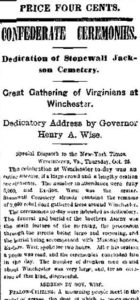
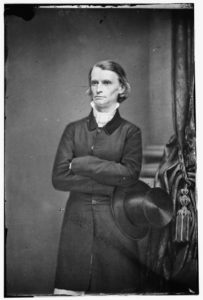
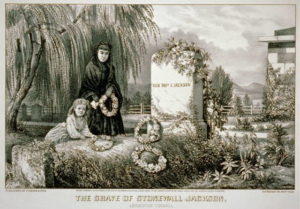
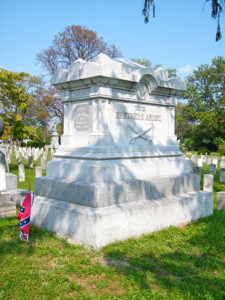
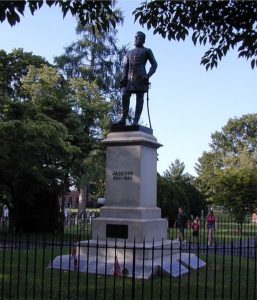
![Miscellaneous. Lee, Gen. R.E. [at the grave of Stonewall Jackson] (between 1873 and ca. 1916; LOC: https://www.loc.gov/item/2016713006/)](https://www.bluegrayreview.com/wp-content/uploads/2016/10/25568v-752x1024.jpg)